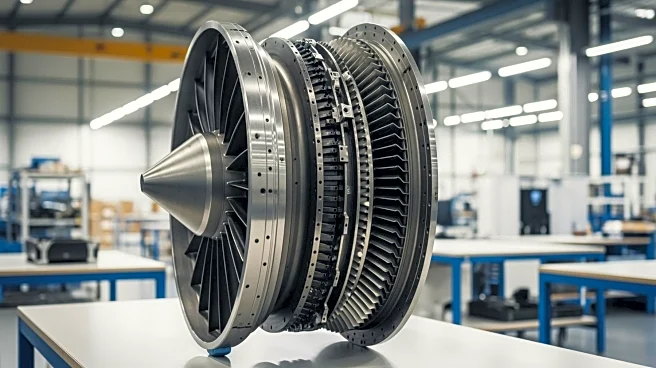What's Happening?
Boeing is prioritizing the stabilization of its aircraft production levels before advancing to higher output rates. Stephanie Pope, CEO of Boeing Commercial Airplanes, emphasized the importance of implementing
safety and quality improvements before increasing production rates. Currently, Boeing has been approved to produce 42 units of the 737 model per month, following a temporary cap due to safety concerns. The company is also nearing a production rate of eight units per month for the 787 model. Pope highlighted the need to meet six targets set by the Federal Aviation Administration, which include addressing supplier shortages and managing out-of-sequence work. The company is setting up a new 'North line' at its Everett factory to accommodate higher production of the 737 model.
Why It's Important?
The stabilization of production rates is crucial for Boeing to ensure safety and quality in its manufacturing processes. This approach aims to prevent past issues, such as the mid-air blowout caused by missing bolts, which led to widespread safety concerns. By focusing on stability, Boeing seeks to restore confidence among regulators and customers, potentially leading to increased orders and market share. The move also reflects Boeing's commitment to meeting regulatory standards and improving operational efficiency, which is vital for maintaining its competitive edge in the aerospace industry.
What's Next?
Boeing plans to gradually increase production rates once the system is ready, although no specific timeline has been provided. The company will continue to work closely with the Federal Aviation Administration to meet the agreed targets and address any industrial glitches. The establishment of the new 'North line' at the Everett factory is expected to play a significant role in accommodating higher production levels, potentially leading to increased output in the future.











